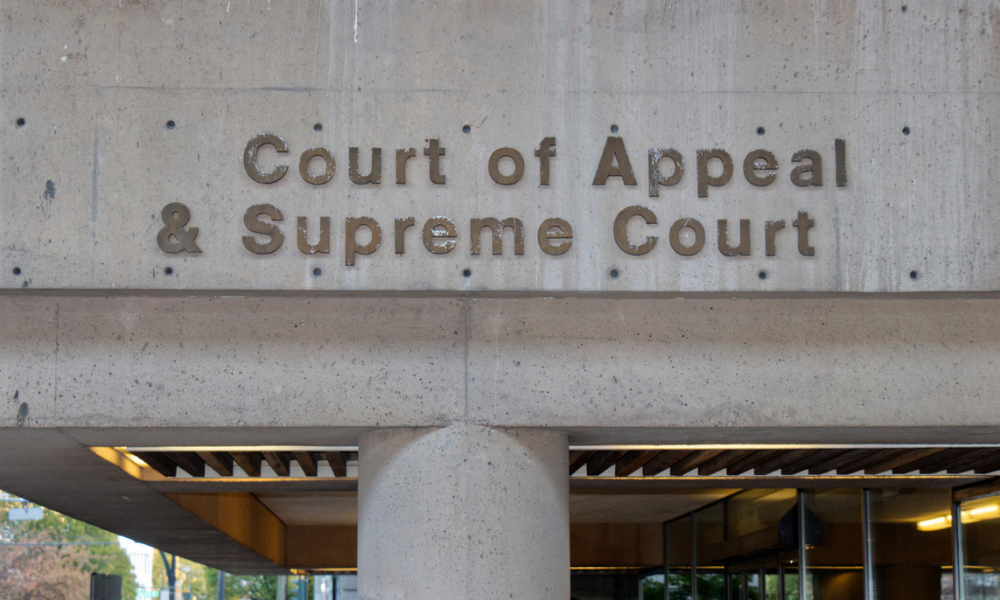Two out-of-province insurers concerned: one had Ontario 'Family Protection' coverage, other didn't

The Supreme Court of British Columbia has remitted a matter involving two out-of-province insurers, where only one insurer had OPCF 44R coverage, to the arbitrator, finding that the arbitral decision failed to observe the rules of natural justice.
In Economical Mutual Insurance Company v Intact Insurance Company, 2021 BCSC 1772, N.C.’s vehicle collided with M.P.’s vehicle in British Columbia in 2011. N.C.’s vehicle was insured under a policy issued in Idaho, so N.C.’s insurer paid out a US$250,000 third-party policy limit to M.P.
M.P. was insured by the respondent Intact Insurance Company under a motor vehicle insurance policy that provided “OPCF 44R,” or Ontario family protection, coverage, which is similar to B.C.’s underinsured motorist protection coverage (UMP). The OPCF 44R clause provided that, if an eligible claimant was entitled to payment under family protection coverage under more than one policy, the insurance on the automobile in which they were an occupant would be first loss insurance, while any other such insurance would be the excess.
At the time of the accident, M.P. had been driving a motorhome rented from a recreational vehicle rental company that was insured with the petitioner Economical Mutual Insurance Company under a policy containing SEF 44 coverage or Alberta family protection coverage, which indemnifies an eligible claimant for the amount that they are legally entitled to recover from an inadequately insured motorist as compensatory damages.
The preliminary hearing before an arbitrator dealt with the priorities of UMP coverage as between the petitioner and respondent insurance companies pursuant to the statutory scheme under the Insurance (Vehicle) Act, R.S.B.C. 1996, c. 231, and Part 10, Division 2 of the Insurance (Vehicle) Regulation, B.C. Reg. 447/83.
The arbitrator determined that the petitioner would be the primary insurer for UMP coverage. The petitioner thus sought leave to appeal and, in the alternative, remittance of the matter to the arbitrator.
The B.C. Supreme Court, finding non-technical arbitral errors, set aside the arbitrator’s decision and remitted the matter for reconsideration, particularly to tackle the parties’ primary arguments and to provide sufficient reasons, pursuant to s. 30 of the Arbitration Act, R.S.B.C. 1996, c. 55. It would amount to a substantial wrong or miscarriage of justice to refuse to set aside the arbitrator’s award, the court said.
The court found that, while the arbitrator made factual findings, reviewed numerous cases, set out the cases’ principles and stated a conclusion, he failed to consider all relevant legislation and to show that he applied the legal principles to the particular facts. The arbitrator did not provide a chain of reasoning to show the parties and the reviewing court how he reached his decision and did not observe the rules of natural justice, the court said.
The arbitrator’s lack of analysis corresponded to the central issue of whether the petitioner, Economical Mutual Insurance Company, had “stepped into the shoes” of the Insurance Corporation of British Columbia, since the insurer was obliged to provide UMP coverage under the province’s legislative scheme, the court found.
The court noted that the case — which involved two out-of-province insurers where one insurer had OPCF 44R coverage while the other insurer did not provide UMP coverage — presented a novel issue, so it was all the more important for the arbitrator to clearly and coherently state his reasons in order to help others understand how he arrived at his decision.
The authorities have not yet addressed this novel issue, the court found. Park v. Insurance Corp. of British Columbia, 2002 BCSC 1114 and Park v. Insurance Corp. of British Columbia, 2004 BCCA 650 dealt with a situation in which there was ICBC insurance and an out-of-province insurer, while Mazur v. The Citadel General Assurance Company, 2005 BCSC 1371 involved multiple out-of-province insurance policies that all had OPCF 44R coverage.
The court did not address whether any legal questions met the test for granting leave to appeal under s. 31(2) of the Arbitration Act because it had already decided to remit the matter to the arbitrator. Remitting the matter would be the most prudent option because the scope of appellate intervention is narrow, the court said.










